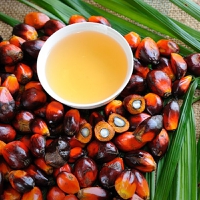
EU adopts new rules to significantly cut packaging waste with re-use targets
The European Union has formally adopted a regulation on packaging and packaging waste. The new ...

Unilever has joined forces with Orbital Insight, a US tech company that specializes in geospatial analytics, to pilot using geolocation data to help identify the individual farms and plantations that are most likely to be supplying the palm oil mills in Unilever’s extended supply chain.
Unilever is committed to ending deforestation across our supply chain – particularly in the cultivation of crops like palm oil and soy.
The technology leverages GPS data – aggregated and anonymized – to allow Orbital Insight to spot traffic patterns. Where there is a consistent flow of traffic between an area of land and a mill, it suggests a potential link.
This means Unilever can get a much clearer picture of where harvested crops are coming from, even down to the individual field. This, in turn, allows us to predict the possibility of issues such as deforestation and, where found, to take action.
The pilot is another step towards building a digital ecosystem with a number of technology partners, which helps us to monitor our supply chain even more closely.
Satellite technology already plays an important role in monitoring land-use change. But images alone can’t prevent deforestation.
Unilever needs to be able to identify links between the mills and the farms or plantations that supply them in order to get real ‘ground truth’.
The current technique is to look at a satellite image and draw a 50km radius around the mills. The company then assumes that the farms or plantations in those catchment areas are equally likely to be supplying the mills. While this methodology has been used and accepted by much of the industry over past years, we believe that it needs to be improved on.
By combining tens of thousands of satellite images with geolocation data and applying artificial intelligence and scalable data science, this new system will give the company unique insights by showing the predicted likelihood that a farm or plantation is supplying any given mill.
It’s a step change from the current approach and it can model supply chain linkages at scale. Unilever is now working with Orbital Insight to develop and finesse this into an operational methodology, and testing the technology at a small number of palm oil mills in Indonesia and soy mills in Brazil.
This approach brings a new level of sophistication to traceability – one that has the potential to work on a massive scale, for Unilever and the rest of the industry.
“Better monitoring helps all of us to understand what’s happening within our supply chains,” says Marc Engel, Chief Supply Chain Officer. “By companies coming together and using cutting-edge technology to carefully monitor our forests, we can all get closer to achieving our collective goal of ending deforestation.”
The European Union has formally adopted a regulation on packaging and packaging waste. The new ...
Inaugurating the Abydos Solar Power Plant in the Upper Egypt governorate of Aswan represents a ...
Businesses that fail to adapt to climate risks like extreme heat could lose up to ...


اترك تعليقا